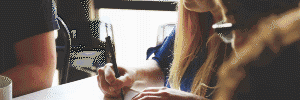Acting upon a complaint regarding a violation of Principle I of the Journalists' Code of Ethics in the article titled “Young Man Suspected of Raping a Dog”, published on Pobjeda's website on 2 April 2025, the Complaints Commission of the Media Self-Regulation Council adopts the following decision:
The Commission has concluded, upon reviewing the complaint, that the Pobjeda portal was under no obligation to contact any member of the family of the individual mentioned in the disputed article. Such an action would run counter to the principles of privacy protection and the safeguarding of personal data concerning the individual who was the subject of the media report. Privacy protection, as one of the core principles of the journalistic profession, takes precedence in cases where contacting immediate family members could lead to the disclosure of the individual’s identity or the violation of their rights.
The Commission took into account Pobjeda’s argument that protecting the individual's privacy was precisely the reason why no initials were disclosed in the article and why close family members were not contacted for clarification. This approach is fully in accordance with the provisions of the Law on Personal Data Protection, as well as the Journalists' Code of Ethics, which explicitly states that journalists are obliged to respect the privacy and identity of individuals, particularly when reporting on suspects or victims of criminal offences.
Regarding the portion of the complaint concerning the failure to publish a rebuttal submitted by the person who filmed the incident, the Commission notes that this issue has been previously discussed in other complaints. In line with established practice, the Commission accepted Pobjeda's position that anonymous rebuttals cannot be published, as doing so could open the door to abuse, undermine professional journalistic standards, and potentially jeopardize the right to a fair trial and the privacy rights of those involved.
Based on all of the above, the Commission finds that the complaint was unfounded and that the Pobjeda portal did not violate Principle I of the Journalists' Code of Ethics—namely, the principle of truthfulness and fair reporting—as all actions taken were in line with applicable law and professional journalism standards.
EXPLANATION
The Media Self-Regulation Council received a complaint from the father of the young man (name known to the Council but withheld for privacy reasons) who was allegedly mentioned in the article published on Pobjeda’s portal on 2 April 2025, titled “Young Man Suspected of Raping a Dog”, with the subheading “Police Investigating Animal Abuse in Njegoš Park in Cetinje.”
In the complaint, the father stated, among other things:
“Dear Sir/Madam, you have received multiple complaints from citizens regarding the article published by Pobjeda on 02/04/2025, titled ‘Young Man Suspected of Raping a Dog.’ The woman who filmed the incident submitted a rebuttal to both Pobjeda and to you, which they refused to publish. The article also states that the editorial team knows the identity of the young man, but as his parent, I can confirm we were not contacted to verify this. This article triggered a wave of threats from various associations and individuals, as well as the publication of inappropriate content, with people citing Pobjeda as their source. The report was picked up by Analitika (which deleted it the following day), Adria, Blic, and possibly others. Since no formal complaint was filed (nor has any investigation proceeded), I believe Pobjeda has a responsibility to mitigate the consequences of publishing unverified information, which has significantly disrupted our family’s life.”
The Media Self-Regulation Council contacted the editorial team at Pobjeda to respond to this complaint. In their response, the editorial team stated, among other things:
"Pobjeda did not publish even the initials of the reported person, nor details of the complaint. The article cited statements from sources within the relevant authorities indicating that a person had been reported. Pobjeda was under no obligation to contact the individual or his family, given that neither his name nor initials were disclosed, nor was there any reference to him being from Cetinje, or the sharing of any personal data. The article contains no information that could lead to identification. The identity of the individual was disclosed through reactions and prior posts on social media—by the local community, in some cases with the best of intentions to protect him.
As for the rebuttal, Pobjeda never received information from the Police Administration that no complaint had been filed, which was the sole subject of our article. The person who submitted the rebuttal did not deny filing the report against the young man, but rather confirmed it. Pobjeda acted in accordance with the Journalists’ Code of Ethics, taking into account that animal cruelty is a criminal offence.
We deeply regret that this incident allegedly occurred in Cetinje, especially given recent tragic events there, but we have a duty to report on potential cases of animal abuse, as we did in Bijelo Polje shortly before this case. It is standard journalistic practice to report when a complaint has been filed, and in this case, we acted with due care, disclosing no details that could compromise the investigation or any individual.
We stress that media literacy and public awareness of the sensitivity surrounding vulnerable groups are essential components of the Ministry of Culture and Media’s strategy, as well as that of all institutions dealing with media, to prevent reactions to similar events from being described by the saying ‘the road to hell is paved with good intentions.’"
The Complaints Commission of the Media Self-Regulation Council reviewed all materials, including the disputed article, the submitted complaint, and Pobjeda’s response.
The article titled “Young Man Suspected of Raping a Dog”, published on 2 April, was a brief report, consisting of only a few sentences. The opening states that the criminal police are investigating a report that a young man raped a dog in Cetinje. It notes that the editorial staff knows the individual’s identity, but no initials were provided. A young woman who allegedly witnessed the incident and reported it to the police is also mentioned. The article states that the police had not responded to inquiries regarding the case, and concludes by mentioning that several animal welfare organisations became involved, including the informal group Fortis.
In reviewing this complaint, the Commission noted that the article, while short, dealt with a delicate and sensitive issue. It also found that the journalist avoided publishing any detail that might reveal the identity of the person mentioned. The report was based on a source close to the investigation, stating that police were taking action regarding a report of alleged animal abuse.
Concerning the complainant’s assertion that he should have been contacted, the Commission finds that Pobjeda acted professionally in this case. The Commission accepted Pobjeda’s position that protecting the individual’s privacy was the main reason for omitting even the initials and not contacting immediate family members. As for the part of the complaint related to the refusal to publish a rebuttal from the individual who filmed the incident, the Commission reiterates that in a previous complaint, it addressed this issue and upheld Pobjeda’s stance that anonymous rebuttals cannot be published. This policy applies not only to this case but universally. Media outlets must know the identity of the individual submitting a correction or rebuttal to ensure accuracy and accountability.
The Complaints Commission concludes that there was no violation of the Journalists’ Code of Ethics in this case. Pobjeda did not disclose any information that would identify the individual mentioned in the article and was therefore not required to contact the person's family, as doing so could have compromised their identity and privacy.
Complaints and Monitoring Commission
Aneta Spaić
Sonja Drobac
Danilo Burzan
Branko Vojičić
Ranko Vujović










